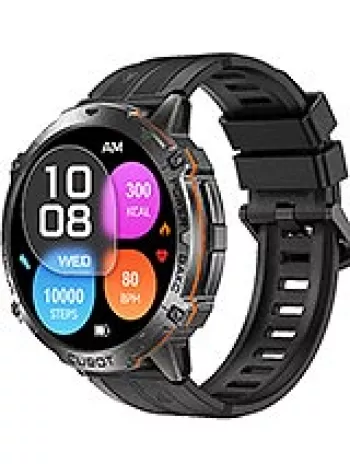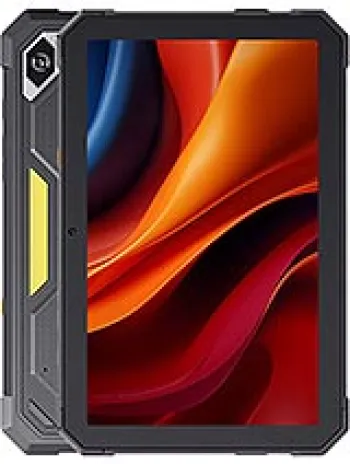
Design and Build Quality
The Cubot X3 boasts a sophisticated design, with dimensions measuring 53.8 x 53.8 x 13.5 mm, which makes it compact and easily portable. This device is relatively lightweight at 94.6 grams, further enhancing its portability. The zinc alloy frame and rear not only add to the aesthetic appeal but also contribute to its durability. Despite its small size, the device offers a robust build quality that can withstand daily wear and tear.
Display Characteristics
The Cubot X3 features a 1.73-inch TFT LCD display with a resolution of 466 x 466 pixels, achieving a pixel density of approximately 381 ppi. This high pixel density ensures clear and vibrant display quality, making it easy to read text and view graphics. The compact display size fits well with the overall design, providing a perfect balance between screen clarity and device portability.
Network and Connectivity
In terms of connectivity, the Cubot X3 diverges from traditional smartphones as it lacks cellular connectivity. Despite this, it supports Bluetooth 5.3 with A2DP, which facilitates wireless communication with other compatible devices for functions such as data transfer or audio streaming. However, the device does not include WLAN, NFC, or USB connectivity, which might limit connectivity options for some users.
Camera Features
Unlike many contemporary smartphones, the Cubot X3 does not come equipped with a camera. This absence could be a downside for users who rely on their devices for photography. However, this also might indicate a focus on other functionalities beyond capturing photos, allowing users to concentrate on productivity or specialized uses.
Performance and Operating System
Running on a proprietary OS, the Cubot X3 is designed for simple operations tailored to its hardware specifications. While specific details on the processor and RAM are not provided, the expectation is of a system optimized for efficient use of the available resources, notably the 16MB storage. The absence of an expandable memory slot suggests reliance on built-in memory for data storage needs.
Sound and Audio Clarity
The Cubot X3 includes a loudspeaker for audio output but omits a 3.5mm headphone jack, aligning with a trend among some modern devices. Users relying on traditional wired headphones may need an adapter or switch to Bluetooth-enabled audio devices. Despite these limitations, the device is likely capable of delivering satisfactory sound quality through its integrated speaker.
Battery Performance
Battery life is a pivotal aspect of the Cubot X3’s functionality. Powered by a 900mAh battery, the device is expected to deliver ample usage time given its small display and limited connectivity features, which typically consume less power. This capacity can likely sustain regular users through a full day of typical tasks with moderate use.
Sensors and Features
The device is equipped with a range of sensors including an accelerometer, heart rate monitor, SpO2 sensor, barometer, and compass. These features are indicative of possible applications in health tracking and basic navigation. Such specifications suggest that the device may be targeted towards users with an active lifestyle, providing essential fitness and environmental data.
Availability and Market Position
Announced and released in March 2025, the Cubot X3 is available in the market. With a primary color option of black, it appeals to users seeking a classic and understated aesthetic. Given its unique specifications, it potentially targets a niche market segment focused on minimalistic and rugged devices.
Conclusion
The Cubot X3 is a distinctive device that embodies simplicity and functionality. While it lacks numerous features typical of modern smartphones, its design prioritizes durability, compactness, and battery efficiency. For users who require a resilient device with health-monitoring capabilities, the Cubot X3 offers a compelling choice.
Key Features of Cubot X3
- Compact Design: Slim body with dimensions 53.8 x 53.8 x 13.5 mm and lightweight at 94.6 g.
- Durable Build: Constructed with a zinc alloy frame and rear, enhancing durability.
- Vibrant Display: 1.73-inch TFT LCD with a resolution of 466 x 466 pixels, offering a high pixel density of ~381 ppi.
- Advanced Sensors: Equipped with an accelerometer, heart rate monitor, SpO2 sensor, barometer, and compass for diverse functionalities.
- Bluetooth Connectivity: Includes Bluetooth 5.3 with A2DP for efficient wireless communication.
- Longevity: Powered by a robust 900 mAh battery, providing extended usage time.
Cubot X3 Drawbacks
- No cellular connectivity available.
- Lack of 3G, 4G, or any speed support for network data.
- No SIM support.
- Small internal memory of only 16MB.
- No card slot for memory expansion.
- No native camera capability.
- No 3.5mm audio jack for headphones.
- Absence of WLAN and NFC capabilities.
- No radio or USB connectivity options.
- Uses a proprietary operating system, potentially limiting app availability and support.


View Also
More Phones
All Rights Reserved +14042 Phones © Mobilawy 2025

























